London violent crime could take 'a generation' to solve
- Published

Jay Hughes was stabbed to death in a premeditated attack at a chicken shop in south-east London
It could take a generation to solve London's violent crime problem, the city's mayor has warned.
Two teenage boys and two men have been stabbed to death in the city in the last five days, including 15-year-old Jay Hughes.
Mayor Sadiq Khan told the BBC's Today programme to "really make significant progress can take up to 10 years".
Home Office minister Victoria Atkins said combating violent crime "isn't just about police numbers".
There have been 118 homicides in the capital this year, including 73 stabbings and 12 shootings, compared to 116 for the whole of last year.
Jay Hughes, 15, was stabbed to death in a chicken shop on Thursday and Malcolm Mide-Madariola, 17, was killed outside a Tube station on Friday.
Met Police commander Stuart Cundy said there were "hundreds of additional duty officers on the streets".
Knife crime: What's it like to be stabbed?
In September, a London Violence Reduction Unit was set up mirroring the approach taken in Glasgow, where violence is treated as a public health issue and "a disease infecting communities".
According to City Hall figures police coverage in London is at its lowest rate in 20 years with 3.3 police officers for every thousand Londoners - the lowest rate since 1998 and 19% below 2010.
Local leaders need to be more successful in lobbying the government for extra money for policing, Mr Khan said.
The mayor said children as young as primary school age are now carrying knives and warned it could take "a generation" to solve the problem.
He added: "They saw in Scotland what we're seeing in London which is children in primary school thinking not only is it OK to carry a knife, but it gives them a sense of belonging, joining a criminal gang, it makes them feel safer.
"We need to use all resources at our disposal to address this horror."


Mrs Atkins said the Home Office was taking a "wrap around approach" to tackling violent crime.
"Drugs is a major player in this rise, we know that serious organised crime is a major factor as well," she added.
"Which is why we are not just focusing on serious violence strategy, but also serious organised crime strategy to hit both ends of the violent crime cycle."
Sadiq Khan tells Today it could take a generation to solve the problem
Local authority and health care professionals will have a new legal duty to take action and prevent violent crime, under plans announced by the government in October., external
Jay Hughes, whose family described him as "very bright and brilliant at art", was stabbed to death in a premeditated attack in Bellingham, south-east London, on Thursday.
Another teenager Malcolm Mide-Madariola was then knifed to death outside Clapham South station on Friday afternoon.
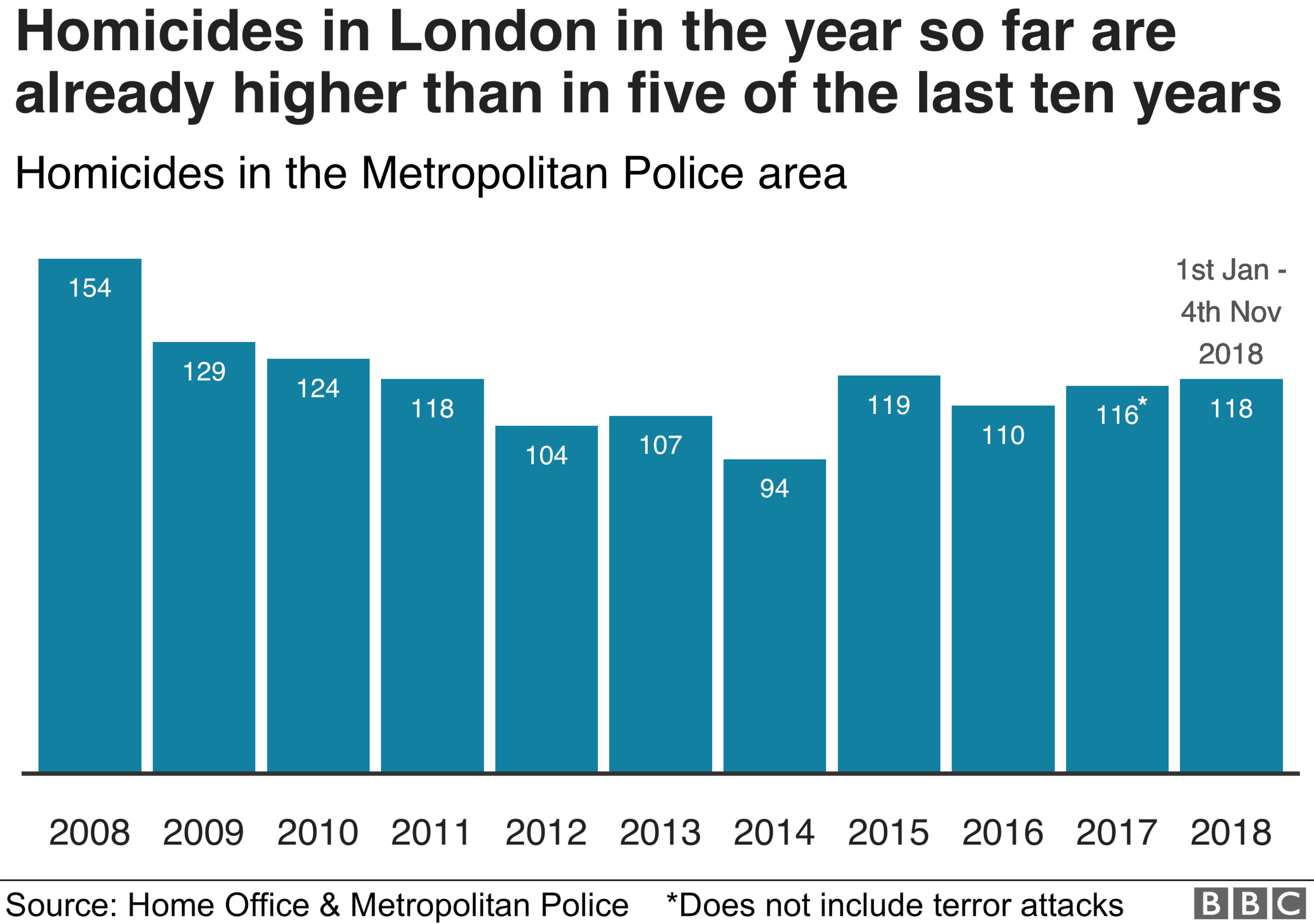
Rocky Djelal, 38, was stabbed to death in a busy London park beside a playground in Southwark on Wednesday.
Two men have also been arrested over the fatal stabbing of a 22-year-old man in Bromley on Sunday.
Mr Cundy said: "Tragically, we have had four murders since Wednesday of last week, none of them are connected.
"That's four families, four groups of friends and acquaintances, who have all been tragically affected by this senseless violence."
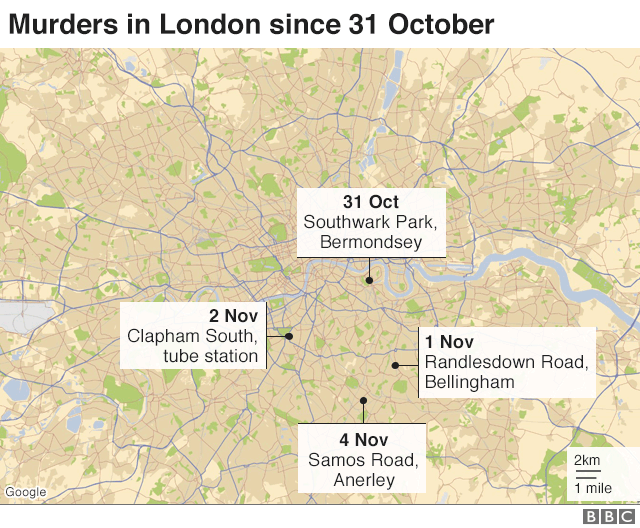
The latest figures from the Office for National Statistics released in April showed that knife crime rose by 22% in England and Wales in 2017.
There were 39,598 offences involving a knife or sharp instrument - up from 32,448 in 2016.
Patrick Green, chief executive of the knife crime charity the Ben Kinsella Trust, has called for a return to investment in initiatives that he said saw knife crime fall between 2011 and 2014.
"Unfortunately this is something you can't turn around particularly quickly," he added.
"It's something that has to last longer than a mayoral term, longer than a government term. This is something that has to have a ten, twenty-year strategy."
- Published5 November 2018
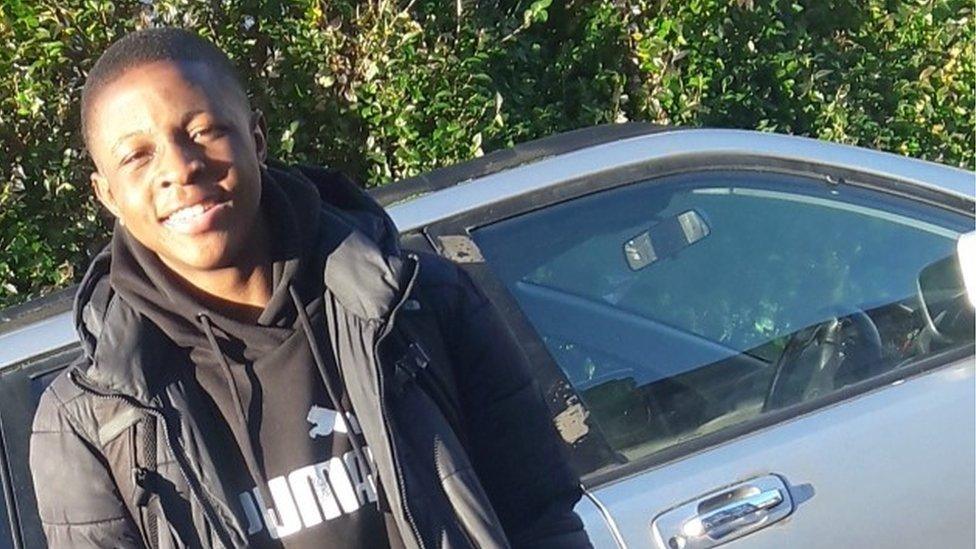
- Published5 November 2018
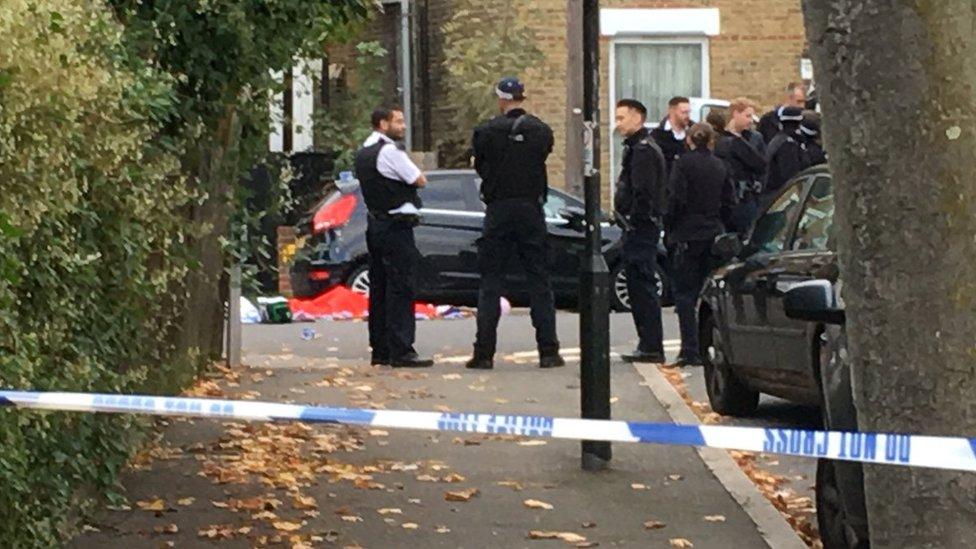
- Published2 November 2018
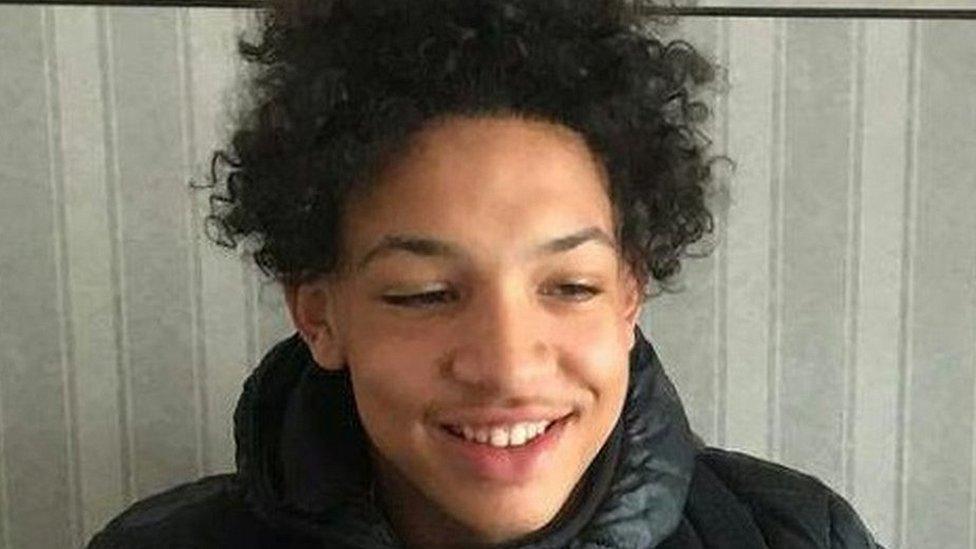
- Published1 November 2018
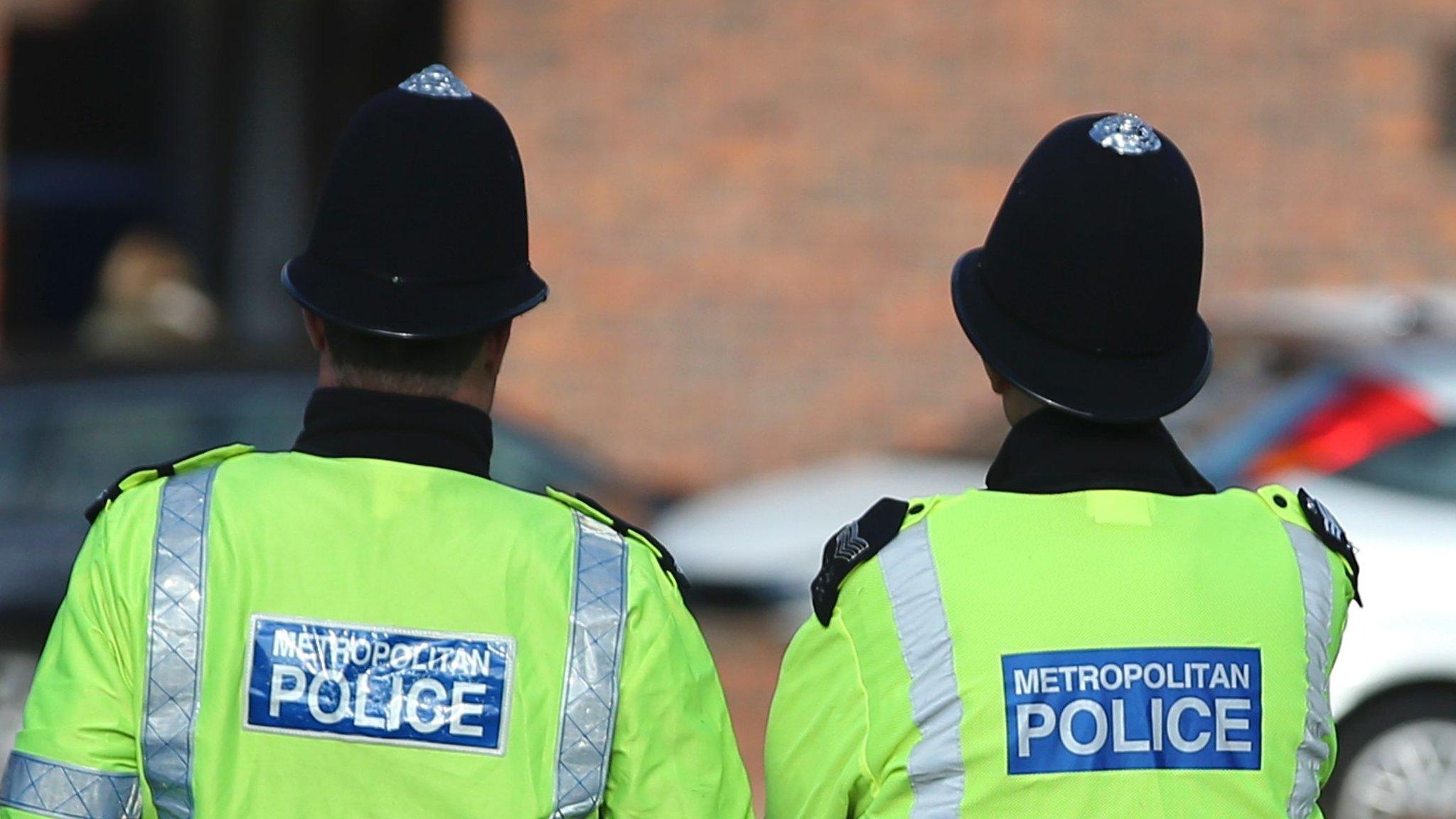
- Published19 September 2018
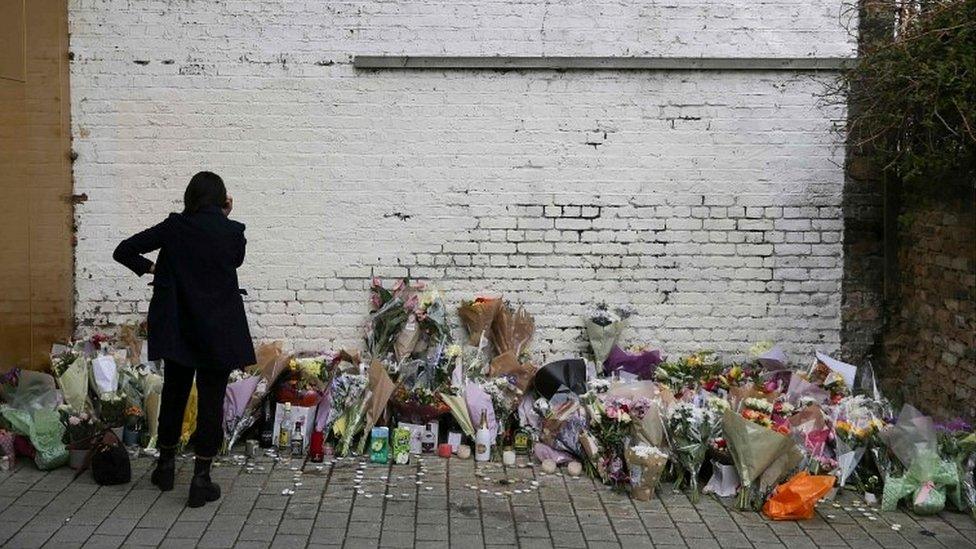
- Published16 August 2018
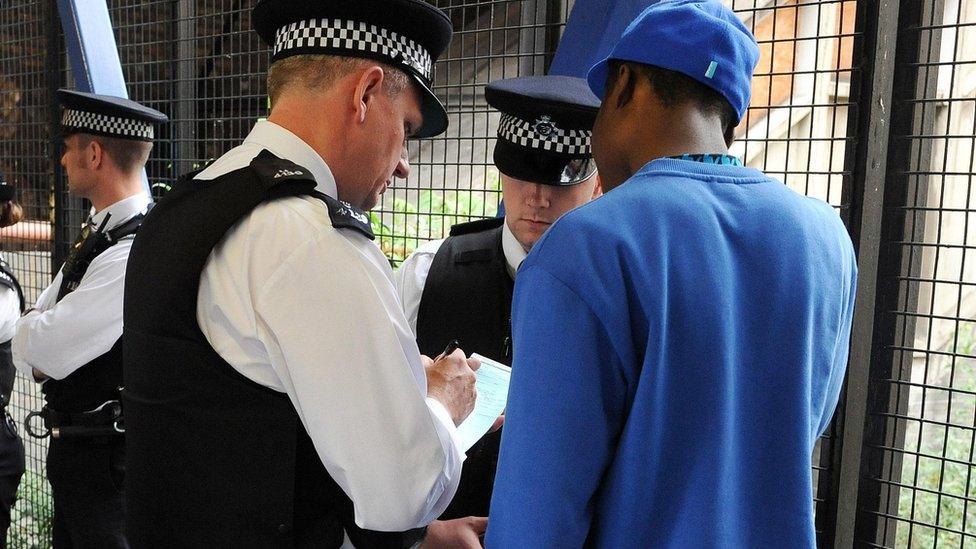
- Published7 June 2018
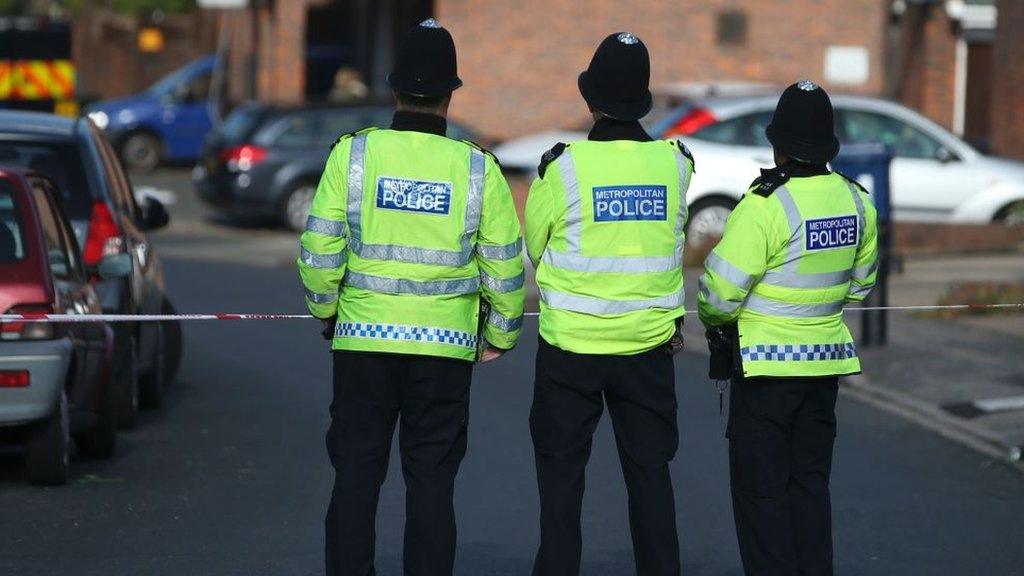
- Published18 July 2019